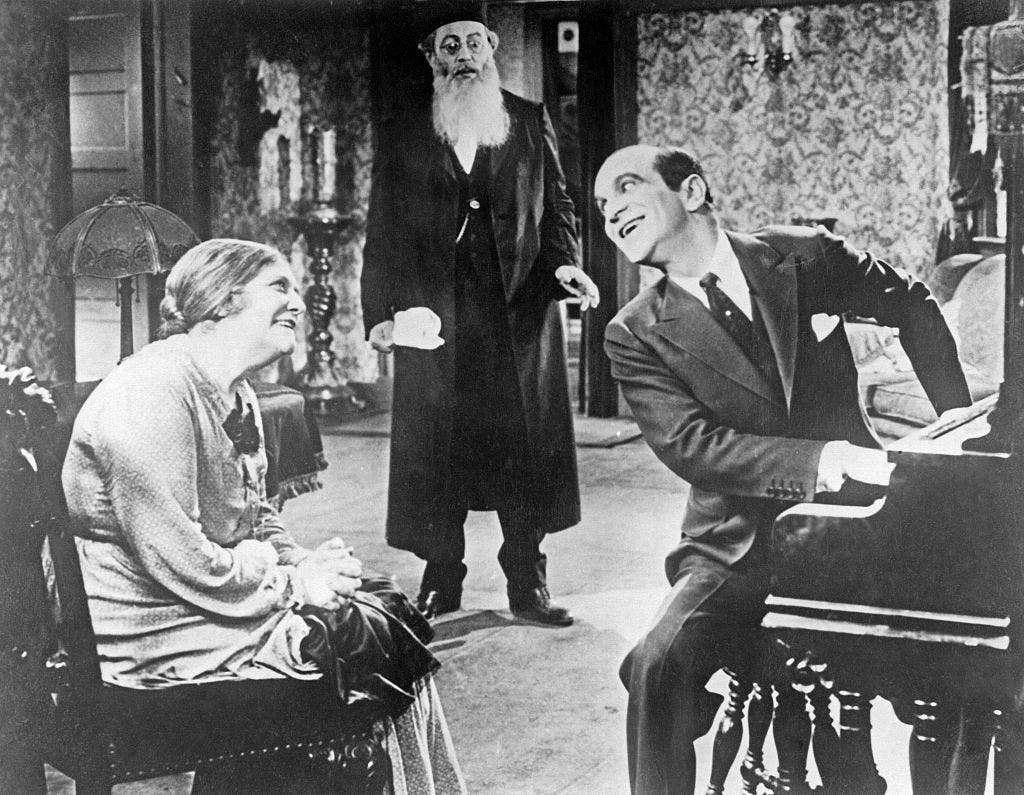On October 6, 1927, the groundbreaking film “The Jazz Singer” was released, marking a significant milestone in cinematic history. Starring Al Jolson, the movie was the first to incorporate synchronized speaking parts for its actors. Despite being primitive by today’s standards, it revolutionized the film industry in the United States and beyond, becoming a landmark achievement in pop culture history.
In a memorable scene, Jolson, portraying Jakie Rabinowitz, delivered the first words ever spoken in a film, saying, “Wait a minute, wait a minute, you ain’t heard nothing yet.” This iconic moment took place in Warner Bros’ flagship theater in New York’s Times Square, and the audience went into a frenzy.
Jolson played the role of a young man from a devout Jewish family who aspired to perform popular music outside of the local synagogue where his father served as the cantor. The film had a soundtrack featuring classic tunes like “Toot, Toot, Tootsie (Goo’ Bye),” which had been a hit for Jolson in 1922.
“The Jazz Singer” was based on a Broadway production from 1925 and inspired several remakes, including a 1952 movie starring Danny Thomas, a 1959 TV production featuring Jerry Lee Lewis, and a 1980 film with Neil Diamond.
While the movie is recognized as an important motion picture, it has also faced criticism from modern critics due to Jolson’s use of blackface, a practice that is now widely condemned. In the film, Jolson’s character, Jake Robin, performs in blackface as a jazz singer.
Despite its flaws, “The Jazz Singer” holds a significant place in American art history. It is included in the National Film Registry’s collection of culturally, historically, or aesthetically significant films. Warner Bros. received an honorary Oscar for the film at the first Academy Awards in 1929, recognizing its revolutionizing impact on the industry.
The American Film Institute ranks “The Jazz Singer” at no. 90 on its list of the 100 greatest American movies of all time. Additionally, the film’s opening line, “You ain’t heard nothing yet,” is ranked no. 71 among AFI’s top lines in cinema history.
In conclusion, “The Jazz Singer” remains a pivotal film in the history of cinema, despite its controversies. Its impact on the industry and popular culture cannot be underestimated.
Denial of responsibility! Vigour Times is an automatic aggregator of Global media. In each content, the hyperlink to the primary source is specified. All trademarks belong to their rightful owners, and all materials to their authors. For any complaint, please reach us at – [email protected]. We will take necessary action within 24 hours.


